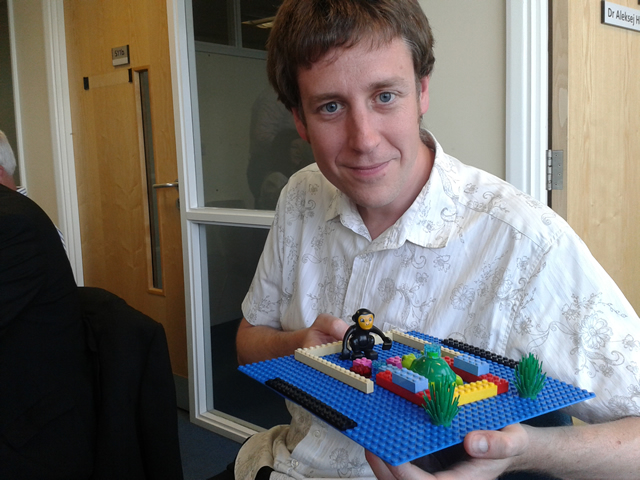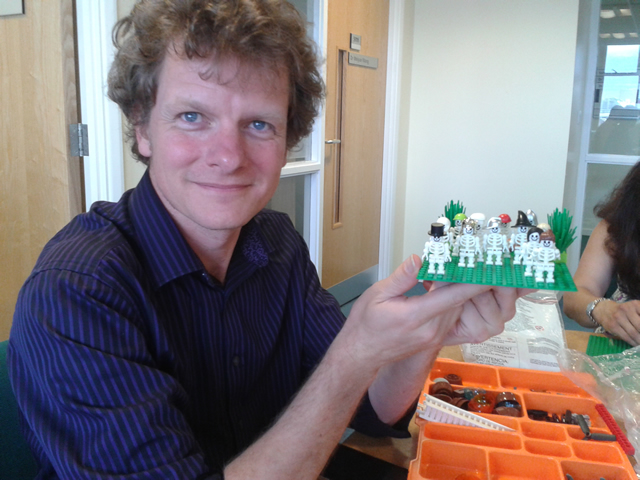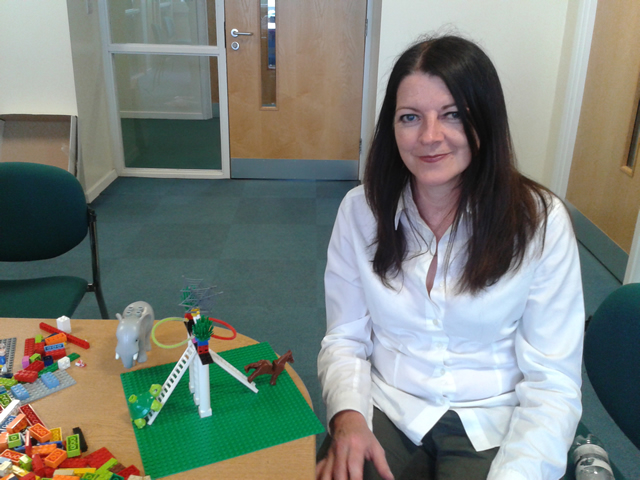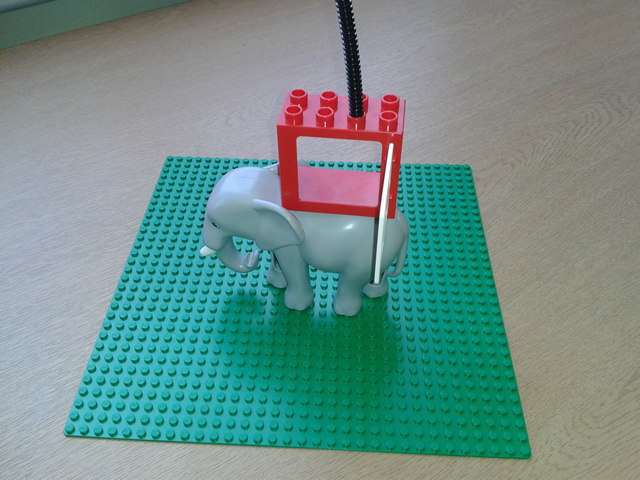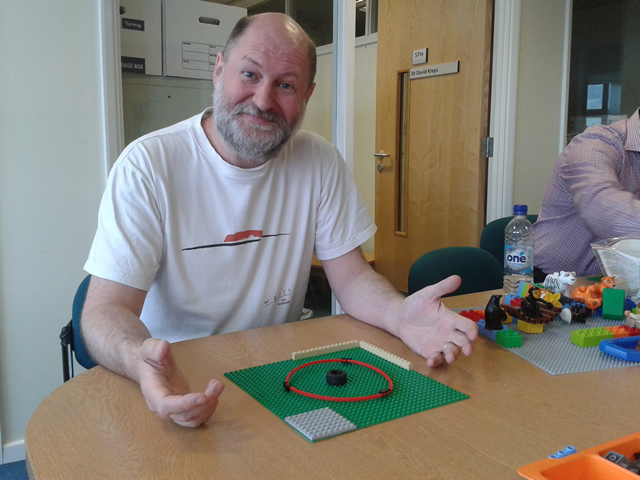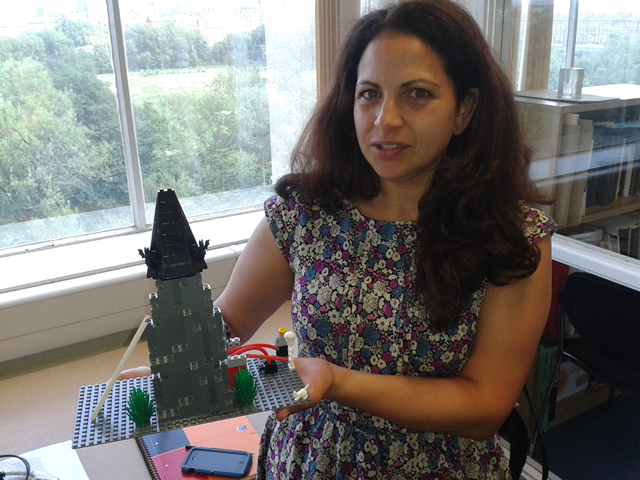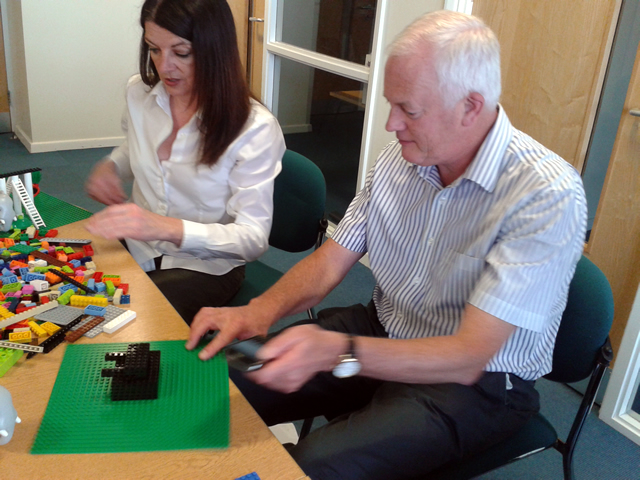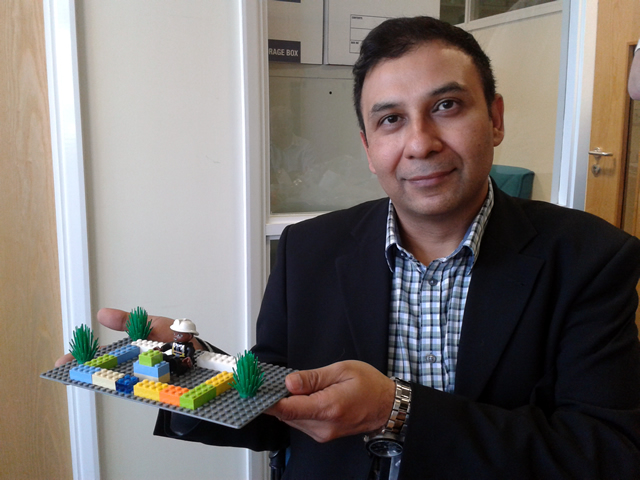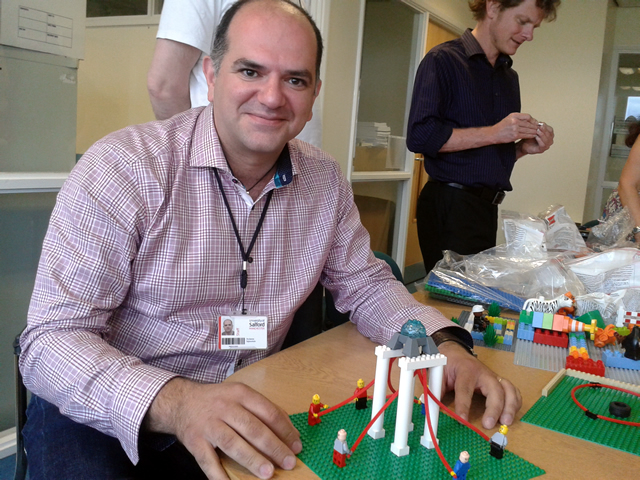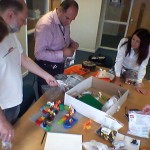
The digital economy is rapidly growing. At the core of this ‘new’ economy is digital business, its practices, business models and engagement with consumers. But what is digital business? Using LEGO® SERIOUS PLAY® we asked nine members of the Centre for Digital Business to describe what they mean when they discuss digital business.
Not surprisingly digital business means different things to all of the Centre members. Reassuringly though there were some points of consistent common agreement. For our Centre members, digital business is the use of human resources and information communication technology to drive communication and interactions to effectively deliver business services and products.
Put more broadly…
“A digital business sustainably integrates human resources and contemporary digital technologies to create value for the business and its customers”.
So, how did our Centre members individually define digital business?
Digital business definitions using LEGO® SERIOUS PLAY®
Alex Fenton – our newly appointed Lecturer in Digital Business
“It is a journey, that has the power to transform organisations for the better. The road can be complex but with the right support and approach, it offers a wealth of opportunity in our globally connected, digital economy.”
Gordon Fletcher
“I have worked from the opposite direction for my definition. Digital business is never an organisation managed by skeletons. The hallmarks of ‘old’ business? People who expect hard copies of invoices, listen to CDs, use a landline as their first choice for remote communications, remember the purpose of a stamp and send postcards from holidays.
For the SMEs who want to become a digital business the first challenge is to break away from this type of skeleton thinking. However and unfortunately for so many SMEs they are yet to even realise that they are working in this way”
Marie Griffiths, Director of the Centre for Digital Business (sculpture) and David Kreps (philosophy)
“Digital business is Zeno’s paradox. The tortoise represents traditional business – a business that is based upon a premise of traditional supply chains, logistics, marketing and strategies. The horse, representing Digital Business, is called Achilles.
Zeno’s paradox of the Tortoise and Achilles illustrates this premise: the universe is made up of a myriad of points. In such a universe, the tortoise has a head start, Achilles must run to reach the position the tortoise has just left before he can try to catch up and overtake it. However, by the time Achilles has reached that point the Tortoise has already moved forward. This need to catch up is repeated endlessly with shorter and shorter distances. Therefore Achilles can never overtake the tortoise.
Of course, this paradox is meant to refute the idea that the universe is made up of fixed points, but rather to imply, on the contrary, that it is composed entirely of movement. In a flowing, continuous universe Achilles quickly catches the tortoise and then moves swiftly onwards to leave the tortoise ever more behind. In a similar way, the flows of information, co-creation, co-production and open innovation that characterise Digital Business are even now leaving the static, staid methods of traditional business behind.”
Aleksej Heinze
“Digital business is sometimes perceived by critics as a ‘white elephant’. The critics that question the value of digital business base their arguments on the high costs of maintenance and upkeep of ever changing technologies.
However, what we have here is something different. It is a “grey elephant”. It is powerful, intelligent and offers an open window for new business opportunities. The grey elephant is also remarkably familiar. It is an organisation that integrates all the necessary and relevant technological advances to maximise value creation for customers, as well as reaching out to still more customers than was ever possible in traditional ‘bricks and mortar’ organisations.”
David Kreps
“Digital business is physically built on circuit boards and cables. But the most important word here also captures its outcomes. That is circuit. Traditional business revolve around a hub with structure and connections being distributed outwards.
Displacing and questioning the notion of this centre turns traditional bricks and mortar businesses on their heads and places digital circuits and circuits of social connectivity at the (decentralised) heart of all activity.”
Maria Kutar
“This model is a metaphor of a Digital Business that is hiding all its organisations activities behind digital screens. But what is behind and between those screens? Ultimately, the screens enables connections amongst people in the organisation and with other organisations and consumers.
The wise owls represent the software engineers and the developers who created the web. On the side of this digital business is a ladder to success – available to anyone who accepts the challenge to climb it.”
Chris Procter
“Digital business is a black box. But, in fact, it is not hard to open and when you do open it – it has people inside!”
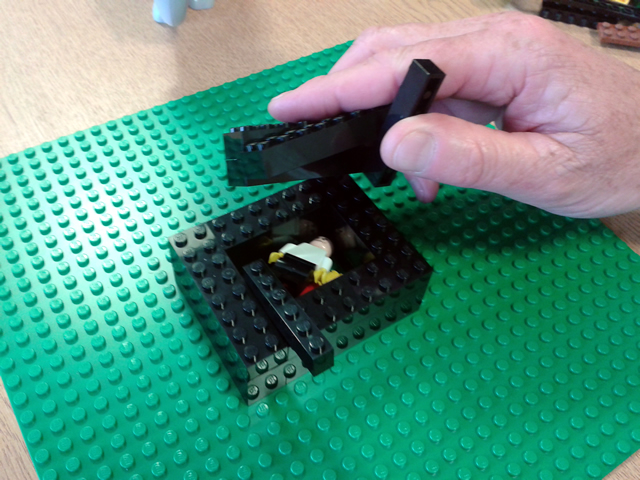
Tahir Rashid
“Digital business is about people and the use of the many many different digital media channels available to them.”
Stelios Sapountzis
“Digital Business is a hub of activities, connections and communications that connect people together and enable them to build innovative futures based on traditional foundations.”
What do you think? What is digital business for you?
Do you have a better definition for what is digital business? Please share your view in the comments below – you can use your own LEGO if you like 😉
